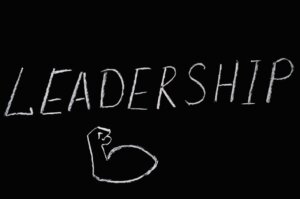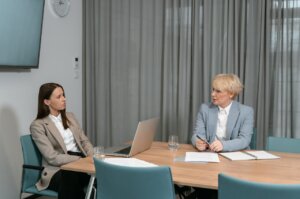Leading and Working in Complex Human Systems
-For Diane Hetherington-
The importance of human systems: We spend much of our lives as part of human systems. Examples include the organizations in which we work, the teams and groups of which we are members, our families, our communities, and our world. In fact, I would argue that we as individual human beings are part of larger human systems, and we as individuals are human systems. Each of us is a human system we call an individual, and we are part of larger human systems that comprise our arenas of activity.
Model Building as a Route to Mastery: Are there ways we as leaders, coaches, and consultants can understand more fully and work more effectively with human systems? I believe so. Three of those ways are:
- Create an explicit model depicting how we think about human systems
- Create approaches and tools that help us work with those systems
- Continue refining the model, the approaches, and the tools by reflecting on our practice over time.
We all have more or less implicit/explicit models of ourselves and of other systems. Model building is the work of making our implicit models explicit and continually testing them.
Learning through Practice and Reflection: For the better part of the last 20 years, I have been engaged in such an endeavor. In the early 90s, David Kantor1, Joel Yanowitz2 and I, with input from many others in Innovation Associates3, began to focus on team learning. In doing so we worked with these questions:
- “What are the forces at play in and around teams that impact their productivity, i.e. their ability to produce desired, and hopefully, outstanding results?”
- “How can we, as leaders, team members, and team coaches, interact with these forces so that we help teams perform at higher levels?”
In doing this work, we soon realized that what we were really about was building a model of a human system–a model of the system itself, of how it changes, and of how we work with it so that it changes in fruitful ways.
In the mid to late 90s and early 2000s at Innovation Associates and Arthur D. Little4, I worked with Kantor, Michael Shanahan5 and many others in large systems change projects. Examples of our work included shepherding company turn-arounds, designing and implementing new business models, implementing new strategies, and improving total quality. In these projects, I continued to apply and grow/refine the above human systems model and accompanying approaches.
In the mid 2000s, I continued to enhance the model in my practice and conducted workshops with other practitioners and executives on how to apply it.
From 2008 to the present, I have been working with a group of colleagues from the Society for Organizational Learning6 on developing a systems approach to leadership coaching. We call ourselves Systems Perspectives, LLC7, and we have developed an educational program, Coaching from a Systems Perspective8, that we are offering to coaches and companies around the world. This work has presented yet another opportunity to further refine the model of human systems and the practice of working with them. As we focused on teams in the early 90s, the work of our Systems Perspectives group today includes the same questions applied to the coaching relationship:
- “What are the forces at play in and around a coach, client, and their relationship that impact their ability to produce desired, and hopefully, outstanding results?
- How can we, as coaches and leaders, interact with these forces so that we increase our effectiveness?”
In doing all the above, hopefully I have learned a few things about how human systems behave and how we can work with them. My next few posts will be about this territory: What are human systems? How do they tend to behave? What are their key elements and how do these elements tend to interact? How can we work in and with Human Systems to help them increase both their business and humanistic impact? I will address these questions by reviewing what we now call The Butterfly Model of Complex Human Systems, walking us through its various sections, and referencing associated approaches and tools.9 In my next post, we will continue our “dance with the Butterfly” by beginning to look at the specifics of the model and what it suggests to us about the behavior of human systems.
If you would like to learn more about leading in complex systems, feel to call or email me. My contact information is below.
Meanwhile, good journey…
- David Kantor is one of the world’s leading family systems therapists and systems consultants. He has written numerous books and articles about families and other human systems and has developed an elegant theory and practice of face-to-face interactions called Structural Dynamics. David has been my mentor in the work I describe here. His first book, Inside the Family, is a classic in the fields of family and human systems. David currently leads The Kantor Institute in Cambridge, MA.
- Joel Yanowitz was the Director of Consulting at Innovation Associates. Under his leadership, we built a substantial consulting practice that complemented IA’s already flourishing training business. Joel currently lives in California with his family, manages an investment firm, and continues his consulting work.
- Innovation Associates was founded by Charlie Kiefer, Robert Fritz, and Peter Senge. IA pioneered transformational leadership development with its groundbreaking program Leadership and Mastery, which has influenced literally hundreds of leaders in almost every field—from banking, to insurance, to high tech, to heavy industry to education. In the 80s and 90’s, Innovation Associates was the leading learning organization consulting firm in the world.
- The original Arthur D. Little was the oldest consulting firm in the world. Founded by Dr. Little in the late 1800s, its work encompassed scientific, technical, environmental, and organizational/strategy consulting.
- Michael Shanahan was a Director at Arthur D. Little, where he led many highly successful large systems change consultations. Along with the author (Steven Ober) Michael did pioneering work in bringing together human and technical, expert and process consulting in ways that had never been done before. Michael is currently a director at Boston Consulting Group in Boston, MA
- The Society for Organizational Learning, founded by Peter Senge, is a global network of practitioners, researchers, and organizational leaders who focus on helping organizations learn to transform themselves.
- Systems Perspectives, LLC is a group of senior coaches from the Society for Organizational Learning’s Coaching Community of Practice. The group has consisted of Jeff Clanon, Miriam Hawley, Richard Karash, Carol Mase, Jeffrey McIntyre, Steven Ober, Heidi Sarkes-Guber, and the late Diane Hetherington.
- Coaching from a Systems Perspectives is a breakthrough educational program for practicing coaches that we have developed and are offering worldwide.
- Many thanks to my Systems Perspectives partners, and, in particular, to Dr. Carol Mase, for helping evolve the model to its current iteration. Dr. Mase’s areas of expertise include living, self-organizing systems. Her headquarters are in Doylestown, PA.
===============================================
Steven P. Ober EdD
President: Chrysalis Executive Coaching & Consulting
Partner: Systems Perspectives, LLC
Office: PO Box 278, Oakham, MA 01068
Home: 278 Crocker Nye Rd., Oakham, MA 01068
O: 508.882.1025 M: 978.590.4219
Email: [email protected]
www.ChrysalisCoaching.org
Steve is a senior executive coach and consultant. He has developed and successfully uses a powerful approach to leadership coaching, Creating your Leadership Story, which enables leaders to make deep, lasting improvements in their leadership effectiveness in short periods of time. He and a group of partners have created a breakthrough educational program, Coaching from a Systems Perspective, in which you can significantly enhance your abilities as a systemic leadership coach. See http://SystemsPerspectivesLLC.com
 Sections of this topic
Sections of this topic
















